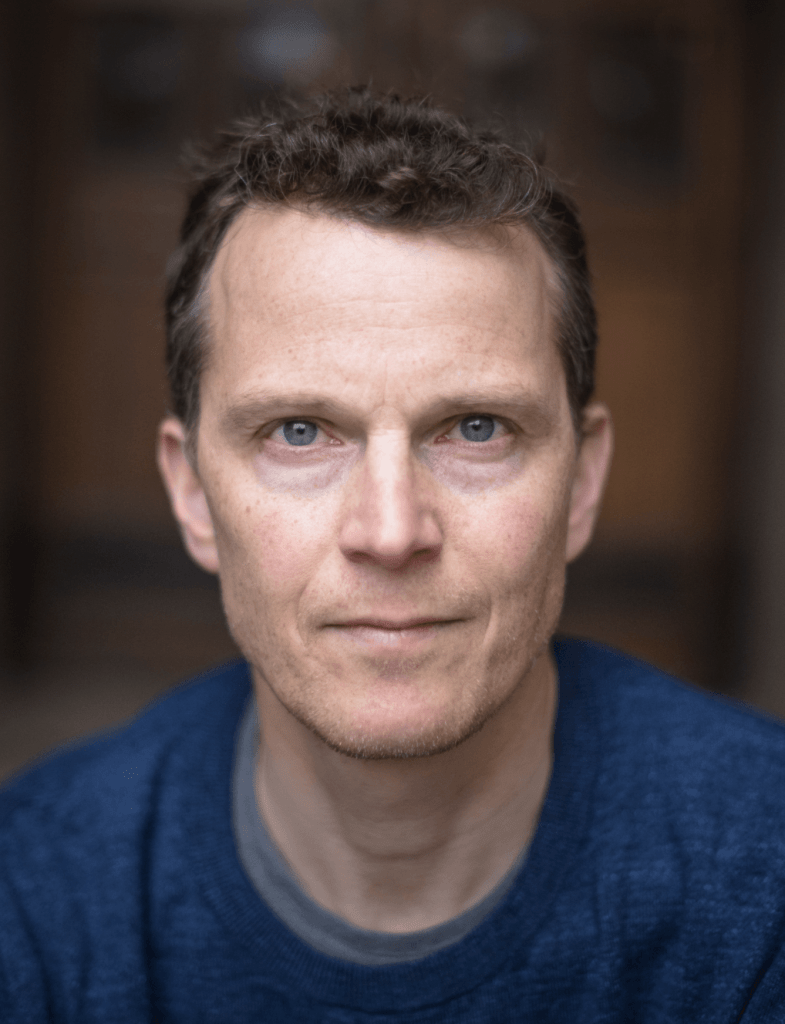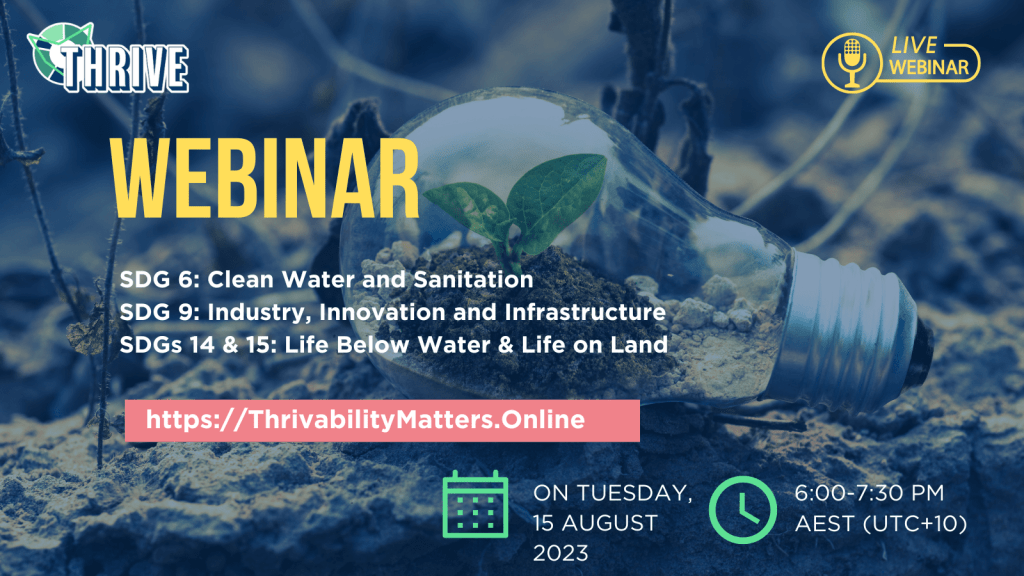The THRIVE project would like to extend our warmest gratitude to Andrew Watson, and Steffi Aikins for their guest presentations at our May Thrivability Matters Webinar. The theme of this webinar was the United Nations’ Sustainable Development Goals, (SDG3, SDG5, SDG10 & SDG13) (Good Health and Well-Being, Gender Equality, Reduced Inequalities and Climate Action).
About Our Speakers

Andrew Watson began to notice the climate and biodiversity emergencies after the special IPCC report in 2018, warning that we had only twelve years to save the planet. Shocked by the lack of any substantive response from political leaders and the media, he was moved to become a speaker, writer, and campaigner. He now works to raise public awareness and push for positive solutions with talks to businesses, charities, schools, local government authorities, and community groups.

Steffi Aikins is a ‘Champion of Change’, Sustainable Project Coordinator, and Supply Chain Manager, whose love for gardening taught her the value of planning, the importance of being flexible, and the power of having a counter strategy. With a graduate diploma in Sustainable development from HEC, she has skills in social economics and a passion for human ecology. Steffi has vast experience in facilitating and organising workshops, meetings, and events. With an unconventional profile, she proficiently navigates the transfer from B2B, B2C, contract management, and multidisciplinary teamwork.
Summary Of the Webinar
THRIVE Project – an organisation that directs humankind toward a more sustainable future – was fortunate to have these two speakers as guest presenters for its May Webinar.
Andrew Watson on ‘Climate Change, Inequality, and the Carbon Budget’
Andrew Watson began his presentation by discussing CO2 emissions from G20 nations in 2021, emphasising general emissions and cumulative emissions per capita. Watson highlighted responsibility for climate breakdown, particularly for politically marginalised groups who lack protection against extractivist projects that violate their rights.
Drawing attention to the historical context, Watson mentioned the captives taken from Africa to the Americas and Europe during the 16th to 19th centuries. This highlighted the long-standing exploitation of the continent. He discussed the contemporary scenario, mentioning the role of companies like Shell and the United Kingdom’s interests in, as an example, Nigeria.
Additionally, Watson highlighted the structural inequality and disparity in financial resources and access to borrowing, which disproportionately affects countries in Africa. He discussed the need for empowering the disempowered by reforming international institutions and policies to ensure fair treatment. Andrew also discussed the Global South (mainly Earth’s least prosperous countries), and the Global North (especially Earth’s most prosperous countries) in the aspect of equality and inequality.
Watson’s presentation encompassed climate change, inequality, and the carbon budget. He emphasised responsibility for climate breakdown, including the impact on politically marginalised groups. He discussed Shell’s involvement in Nigeria. These companies contribute to emissions and systemic inequalities. Addressing structural inequality and finance, Watson proposed empowering the disempowered through various measures. He also advocated for a more equitable and sustainable approach to climate change.
Steffi Aikins on ‘The Formula for Sustainable Cities and Communities’
Steffi Aikins emphasised the importance of a holistic approach to development that prioritises sustainable practices, social economy skills, food security, and human ecology. Sustainable development ensures growth without harming the environment, while social economy skills promote businesses with a social and environmental impact. Food security and human ecology focus on access to healthy food and the interdependence of humans and the natural world.
Steffi’s presentation highlights the need for collaboration, planning, and problem-solving to empower individuals and communities through food education and sustainable practices. Supporting local farmers and urban gardening activities can create a more equitable and sustainable food system. These aspects all assist in creating more sustainable communities.
The concepts of social economics and human ecology were explained, focusing on how they influence well-being, economic decisions, social outcomes, gender equality, and the interactions between humans and their environment. Steffi also discussed how the indigenous people of Canada are affected, something that happens to most indigenous populations and cultures globally.
The presentation concluded by emphasising that food security is essential for building sustainable cities and communities that prioritise residents’ well-being and protect the environment. She is encouraging us to act toward sustainability.
CONCLUSION
In conclusion, Andrew Watson’s presentation addressed CO2 emissions, climate breakdown, and structural inequality. He highlighted the responsibility of G20 nations for climate breakdown, particularly affecting politically marginalised groups. Watson discussed historical exploitation and contemporary issues involving Shell and the United Kingdom. He emphasised the underrepresentation of marginalised communities in climate science and the need for reforming international institutions to empower them.
Steffi Aikins focused on sustainable development, social economy skills, food security, and human ecology. Collaboration and planning were emphasised to empower individuals and communities through food education and sustainable practices. In order for a more equitable and sustainable food system to exist, it was emphasised that local farmers and urban gardens should be supported and endorsed. Food security was underscored for building sustainable cities and communities, with a call to action for sustainability.
If you missed the presentations or the live Q&A session, you can view the recording on our YouTube channel. Keep an eye on our webinar page to view upcoming webinars and register for our next webinar here.
Do keep on thriving!

SUBSCRIBE TO OUR NEWSLETTER
GOT A QUESTION ABOUT THIS TOPIC?























